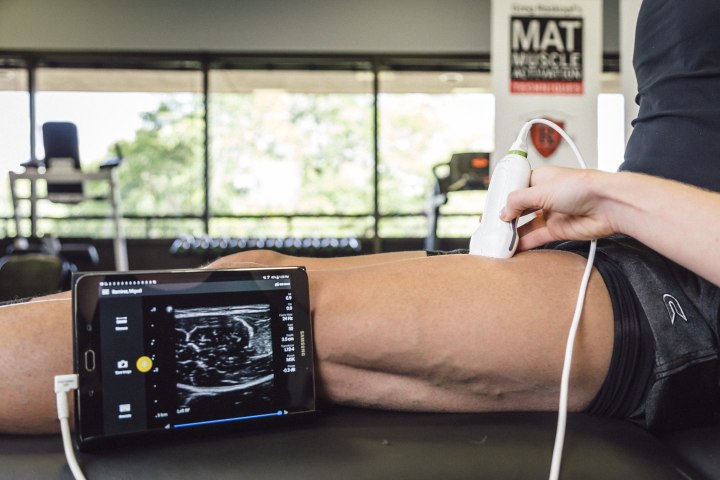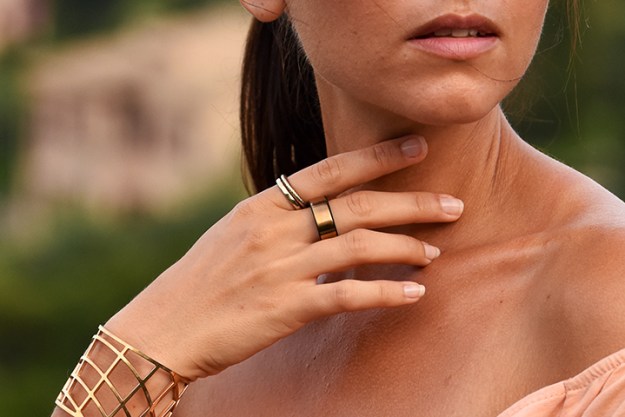
By detecting damaged muscles and monitoring injury recovery, MuscleSound claims to help provide vital insights, aiding athletes in their quest to perform at peak condition. In using ultrasound imagery, MuscleSound says it is able to “look inside your muscles” and make determinations around a range of factors that contribute to your overall muscle health. There are two key assessments involved in MuscleSound — a muscle fuel assessment and a body composition assessment. The first uses a technique called Musculoskeletal Ultrasound (MSK), which allows doctors to “see” glycogen, which serves as a primary fuel for muscle. The second assessment is said to use ultrasound to “comfortably measure body fat and lean body mass,” as well as provide a “breakdown of fat thickness at individual sites.”
But how does ultrasound really work in these scenarios? According to MuscleSound, different tissues and fluids within our muscle reflect ultrasound waves back at varying speeds, which produces unique shapes and brightness levels. MuscleSound then analyzes these images for a “range of metabolic and structural functions.”
Ultimately, MuscleSound provides athletes with a score, ranging from zero to 100. It’s a composite of two scores — first, the muscle fuel rating, which compares how the individual stacks up against others in MuscleSound’s database. Second is his or her fuel level, described as a “longitudinal tracking of an individual’s own fuel level over time.”
Already, a number of college and professional teams across a range of sports have adopted the technology to better understand their players’ health. As Keith Dugger, head athletic trainer for the Colorado Rockies Baseball Club, told Forbes, “Our players’ health and safety out on the field is always our top priority, and with MuscleSound, we’ve been able to build the ability to access real-time muscle health data into our day-to-day operations. By having access to a real-time blueprint of each player’s muscle health and fuel levels before and after every game, we’re able to provide each athlete with a customized plan with muscle-specific data allowing for personalized nutrition and training recommendations.”


